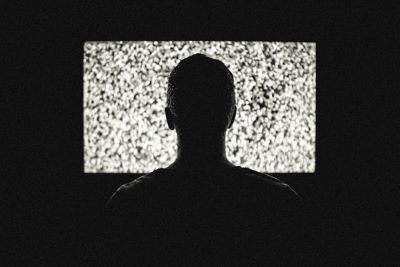After a long day, many turn to TV for relaxation and entertainment. Yet, the blue light from screens can disrupt our natural sleep cycle, making it hard to fall asleep and potentially leading to poor sleep quality and insomnia. However, there’s no need to worry. By adjusting your TV viewing habits and implementing a few simple strategies, you can enjoy your favorite shows or movies and still ensure a restful night’s sleep. In this article, we’ll cover effective ways to relax after watching TV for better sleep.
The Effects of Watching TV Before Bed
Many of us have the habit of watching TV right before bed, whether it’s to catch up on our favorite shows or to wind down after a long day. However, this seemingly harmless activity can have negative effects on our sleep. The blue light emitted from TV screens suppresses the production of melatonin, the hormone that regulates our sleep cycle. This can result in difficulty falling asleep and disrupted sleep patterns. The content we watch on TV can also affect our mental state and make it harder for our minds to relax and unwind before bed. Be aware of these effects and take steps to counteract them to improve our sleep after watching TV.
Relaxing Activities to Wind Down After TV Time
Incorporating relaxing activities into your bedtime routine can also help promote better sleep after watching TV. Instead of immediately going to bed after turning off the TV, take some time to wind down and relax. This could include reading a book, listening to calming music, or practicing deep breathing exercises. You could also enhance your wellness with Delta-9 gummies or other natural sleep aids. These activities can help relax your mind and body, making it easier for you to fall asleep after watching TV.
Tips for Reducing Blue Light Exposure from TV Screens
If watching TV before bed is a nightly ritual for you, take steps to reduce your exposure to blue light. One simple tip is to adjust the brightness of your TV screen. Lowering the brightness can decrease the amount of blue light emitted and make it easier on your eyes. Another option is to wear blue light-blocking glasses while watching TV. These glasses filter out blue light and can help prevent disruptions to your sleep cycle. Many modern TVs have a “night mode” or “sleep timer” feature that reduces the amount of blue light emitted during specific hours. Take advantage of these features to limit your exposure and improve your sleep after watching TV.
Mindful TV Habits to Improve Sleep Quality
Aside from reducing blue light exposure, being mindful of your TV habits can also make a big difference in your sleep quality. For example, try to limit the amount of time you spend watching TV before bed. Instead of binge-watching multiple episodes or staying up late for a movie marathon, set a time limit and stick to it. This will give your mind and body enough time to wind down and prepare for sleep. Avoid watching stimulating or intense shows and opt for more relaxing and calming content before bed. Try to avoid using your TV as a background noise while you fall asleep. The constant noise can disrupt your sleep and make it harder to fully rest.
Creating a Sleep-Friendly Environment in Your Bedroom
Creating a sleep-friendly environment in your bedroom is important for promoting better sleep after watching TV. Start by keeping your bedroom dark and cool, as this can help signal to your body that it’s time to sleep. Invest in blackout curtains or use an eye mask to block out any light from outside sources. Keep electronics such as phones and laptops out of the bedroom, as they can be a distraction and emit blue light. Make sure your bed is comfortable and supportive, as a good mattress and pillows can make all the difference in getting a restful night’s sleep.
Alternative Sources of Entertainment to Replace Late-Night TV Watching
If you find yourself struggling to give up late-night TV watching, consider incorporating alternative sources of entertainment into your bedtime routine. Instead of turning on the TV, try listening to an audiobook or podcast. These can be just as engaging and entertaining, without the negative effects of blue light exposure. You could also try practicing a relaxing hobby such as knitting or coloring before bed. This can help ease your mind and promote relaxation before sleep. Experiment with different activities to find what works best for you in terms of winding down and promoting better sleep after watching TV.
By using these strategies, we can enjoy our favorite shows and still prioritize a good night’s sleep. With simple changes and conscious efforts, we can sleep better after TV time and wake up refreshed, ready for the day. Sweet dreams!


